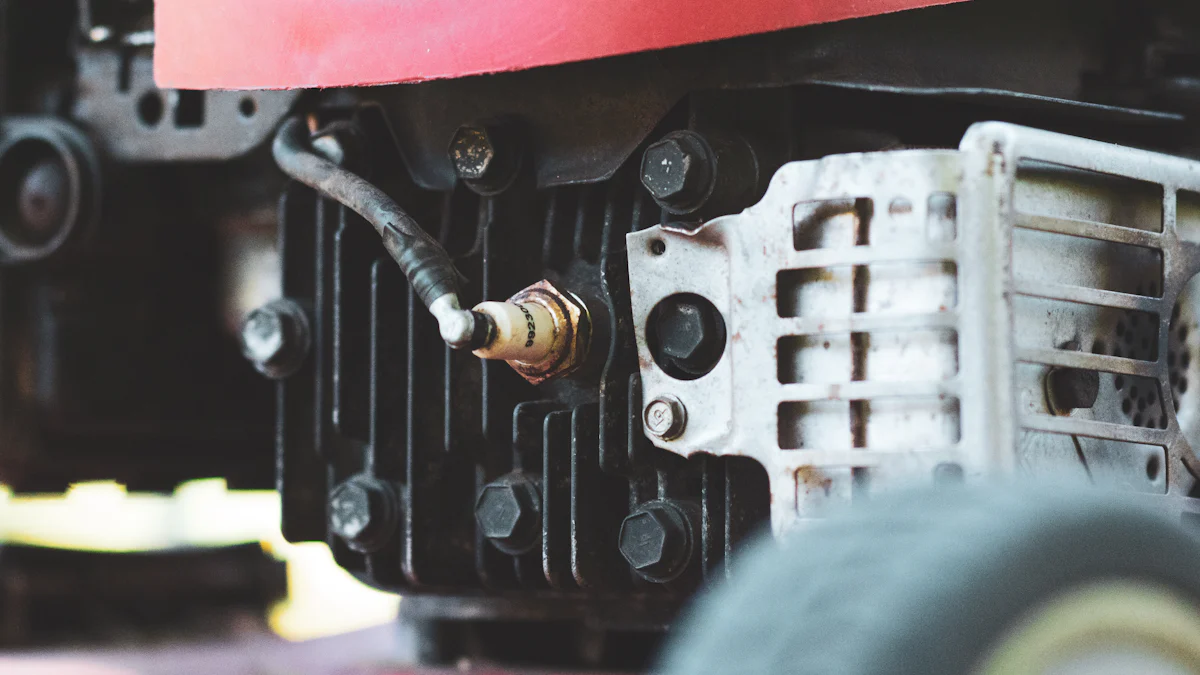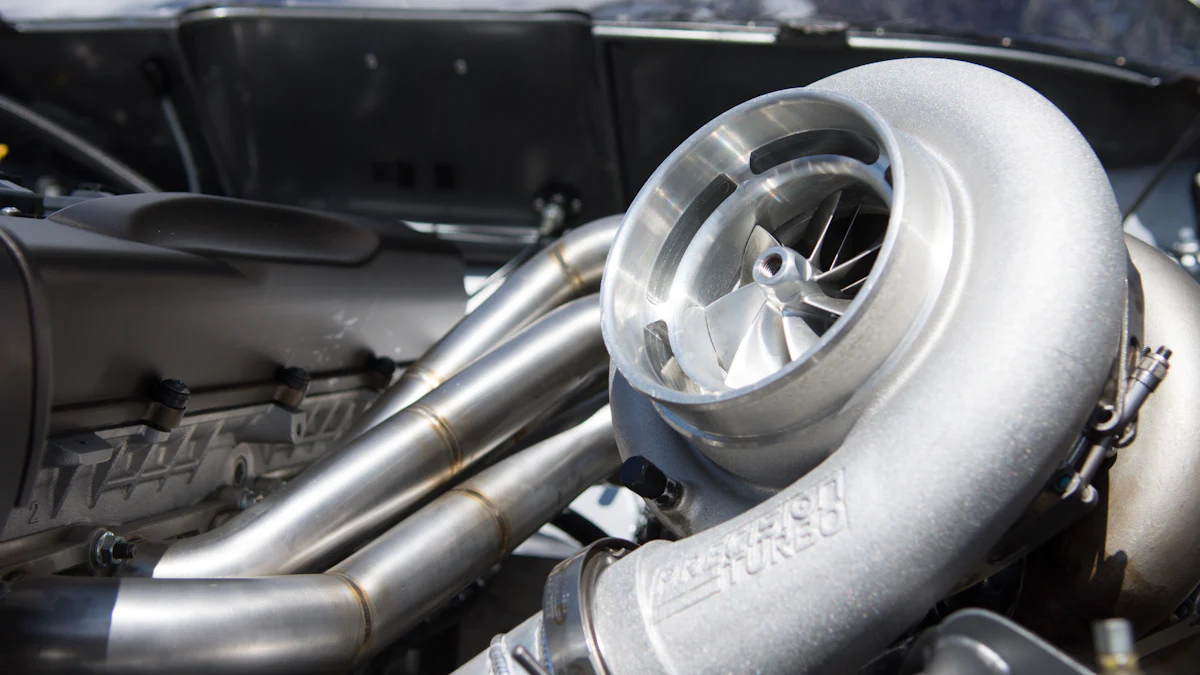Welcome to the website of Jiangsu Jiuyuan Power Equipment Co., Ltd
Welcome to the website of Jiangsu Jiuyuan Power Equipment Co., Ltd

2024-11-06

Diesel generator sets play a vital role in providing reliable power across various sectors. They are particularly significant in industries like mining, where over 70% of power needs rely on these generators. Understanding the specifications and features of diesel generator sets is crucial for ensuring optimal performance and efficiency. These generators are typically 20-40% more efficient than their natural gas counterparts, making them a preferred choice for backup power systems in residential, commercial, and industrial applications. Their ability to power remote construction sites and provide emergency backup for hospitals underscores their importance in critical infrastructure.

Diesel generator sets come with specific power ratings that determine their suitability for various applications. Understanding these ratings is crucial for selecting the right generator.
Power output in diesel generators is measured in kilowatts (kW) and kilovolt-amperes (kVA). The kW rating indicates the actual power the generator can deliver, while the kVA rating represents the apparent power, which includes both active and reactive power. For instance, the Caterpillar Cat® XQ330 Series Mobile Diesel Generators provide up to 288 kW in standby mode, showcasing their capability to handle substantial power demands.
Choosing the correct power output involves matching the generator’s capacity to the specific needs of the application. For example, residential settings might require generators ranging from 3 to 10 kW, while industrial applications may demand higher outputs. Manufacturers often specify continuous power and maximum power ratings, allowing users to understand the generator’s performance under different load conditions.
Fuel type and consumption are critical factors influencing the efficiency and operational cost of diesel generators.
Diesel fuel is known for its energy density and efficiency. It provides more energy per gallon compared to gasoline, making diesel generators a preferred choice for long-term power supply. The CK Power Tier 4 Generators, powered by the Volvo Penta D13 engine, exemplify this efficiency, offering extended run times with their 300-gallon sub-base fuel tank.
Fuel consumption rates vary based on the generator’s load and design. Efficient models, like those from CK Power, can run for 19 hours at full load, highlighting their fuel-saving capabilities. Users should consider both the fuel consumption rate and the generator’s efficiency when evaluating options, as these factors directly impact operational costs and environmental footprint.
Fuel efficiency stands as a critical feature of diesel generator sets. These generators often outperform their natural gas counterparts in terms of fuel economy.
Several factors influence the fuel efficiency of diesel generators:
When comparing diesel generator models, users should consider:
Noise levels represent another important consideration for diesel generator users. Excessive noise can disrupt environments and violate local regulations.
Noise output is measured in decibels (dB). Manufacturers provide noise ratings for their generators, allowing users to assess the potential impact on their surroundings.
Modern diesel generators incorporate technologies to minimize noise:
Diesel generators, while efficient, emit pollutants. Understanding emissions and their environmental impact is crucial for responsible usage.
Governments enforce emission standards to limit pollutants from diesel generators:
Eco-friendly diesel generators offer reduced emissions:
By understanding these key features, users can make informed decisions when selecting diesel generator sets, ensuring they meet both performance and environmental requirements.

Diesel generator sets have embraced smart technology, transforming how they operate and are maintained. Smart technologies like IoT, AI, and cloud-based platforms now play a crucial role in enhancing generator functionality.
Remote monitoring allows users to oversee generator performance from anywhere. This feature provides real-time data on operational status, fuel levels, and power output. Users can access this information through mobile apps or web interfaces, ensuring they stay informed about their generator’s condition. This capability not only enhances convenience but also improves response times to potential issues.
Predictive maintenance uses data analytics to forecast when a generator might require servicing. By analyzing patterns and trends, these systems can predict failures before they occur. This proactive approach reduces downtime and extends the lifespan of the generator. It also optimizes maintenance schedules, ensuring that servicing occurs only when necessary, thus saving time and resources.
The design and materials used in diesel generator sets have seen significant advancements, focusing on efficiency and durability.
Modern diesel generators feature lightweight and compact designs, making them easier to transport and install. These designs do not compromise on power output, allowing for efficient energy production in a smaller footprint. This innovation is particularly beneficial for applications requiring mobility, such as construction sites or temporary events.
Manufacturers now use advanced materials to enhance the durability of diesel generators. These materials withstand harsh environmental conditions, reducing wear and tear. As a result, generators last longer and require less frequent replacements. This durability ensures reliable performance over extended periods, making them a cost-effective choice for long-term power solutions.
Routine maintenance ensures the longevity and reliability of diesel generator sets. Regular servicing schedules play a crucial role in maintaining optimal performance.
Diesel generators require consistent maintenance to function efficiently. Manufacturers recommend quarterly and yearly maintenance plans. These schedules help in identifying potential issues before they escalate. Regular checks include inspecting fuel systems, oil levels, and battery conditions. By adhering to these schedules, users can prevent unexpected breakdowns and ensure continuous power supply.
Several tasks form the backbone of routine maintenance for diesel generators:
Adopting best practices in operation enhances the efficiency and lifespan of diesel generators. Safe operation guidelines and tips for extending generator lifespan are essential for optimal performance.
Operating diesel generators safely is paramount. Users should follow these guidelines:
To maximize the lifespan of diesel generators, users should consider the following tips:
By implementing these maintenance and operational strategies, users can ensure that their diesel generators remain reliable and efficient, providing uninterrupted power when needed.
Choosing the right diesel generator set involves careful consideration of power needs and evaluating various specifications and features. This section provides a structured approach to making an informed decision.
Understanding your power requirements is the first step in selecting a suitable generator. This involves calculating both current and future power needs.
To determine the total power requirements, list all the devices and equipment that the generator will support. Calculate their combined power consumption in kilowatts (kW). Consider both the starting and running power needs, as some equipment requires more power to start than to run. For instance, motors and compressors often have higher starting power demands. By accurately calculating these needs, users can ensure that the generator provides sufficient power without overloading.
Planning for future power needs is equally important. As businesses grow or household needs change, power demands may increase. Consider potential expansions or additional equipment that might require power. By factoring in these future needs, users can select a generator that accommodates growth, avoiding the need for frequent upgrades.
Once power needs are assessed, the next step involves evaluating the specifications and features of different diesel generator sets. This ensures that the chosen model aligns with specific requirements and offers the best value.
Identify the key features that are most important for your application. These might include fuel efficiency, noise levels, emissions, and technological advancements like remote monitoring. For example, in residential areas, low noise levels might be a priority, while in industrial settings, fuel efficiency could take precedence. By prioritizing these features, users can narrow down their options to models that best meet their needs.
Balancing cost and performance is crucial when selecting a diesel generator set. While high-performance models may offer advanced features, they often come at a higher price. Consider the long-term benefits of these features against the initial investment. For instance, a more expensive generator with superior fuel efficiency might save money in the long run through reduced fuel costs. Logical reasoning helps in weighing these factors to choose a generator that provides the best lifetime value for the specific application.
By following these steps, users can make informed decisions when selecting a diesel generator set, ensuring it meets both current and future power needs while offering the desired features and performance.
Understanding the specifications and features of a diesel generator set is essential for making informed decisions. Users must match these specifications to their specific needs to ensure optimal performance. For instance, Microtech Consulting praised the smooth and efficient purchase process of a 250KVA generator, highlighting the importance of selecting the right model. Similarly, Eagle Generators Company received accolades for delivering a high-quality product on time. These testimonials underscore the value of choosing a generator that aligns with both current and future power requirements. By considering factors like power output, fuel efficiency, and technological advancements, users can confidently select a generator that meets their demands.